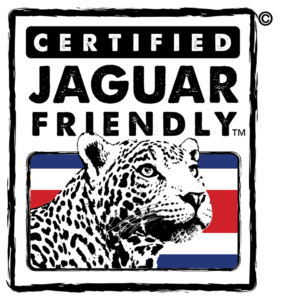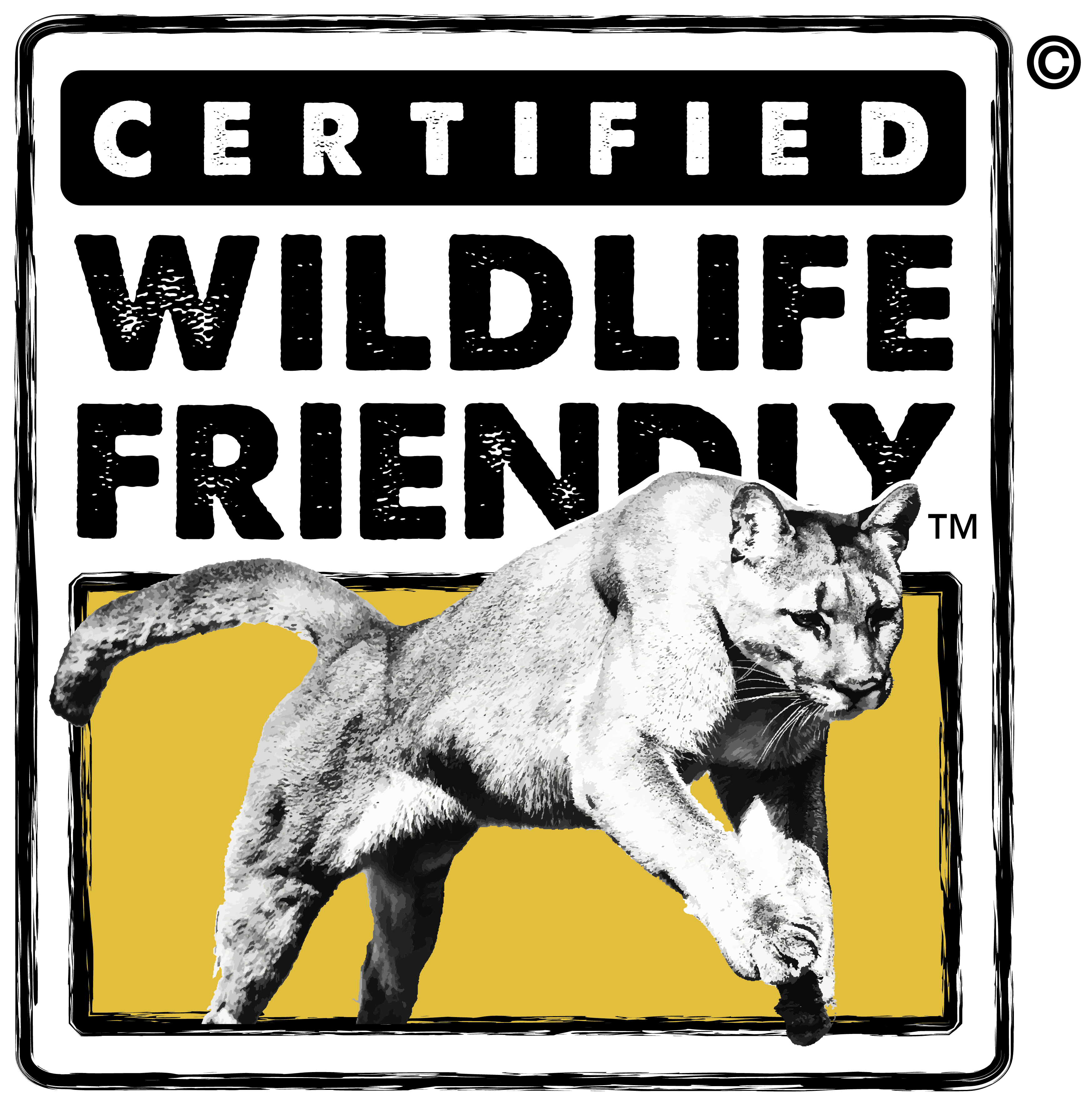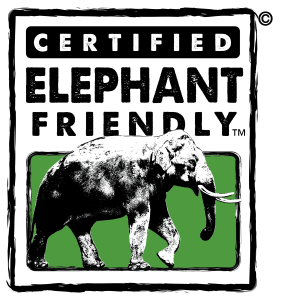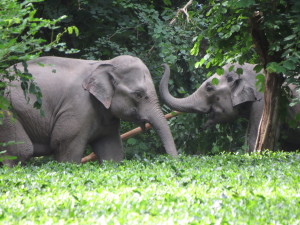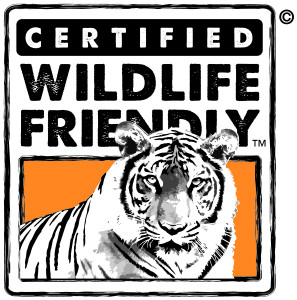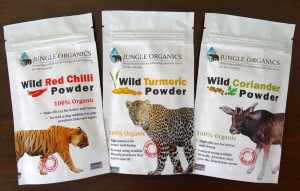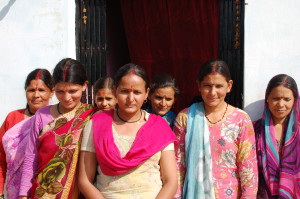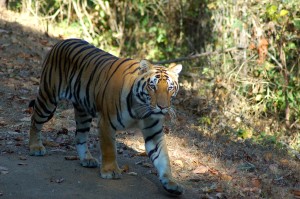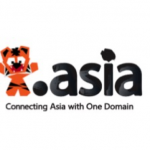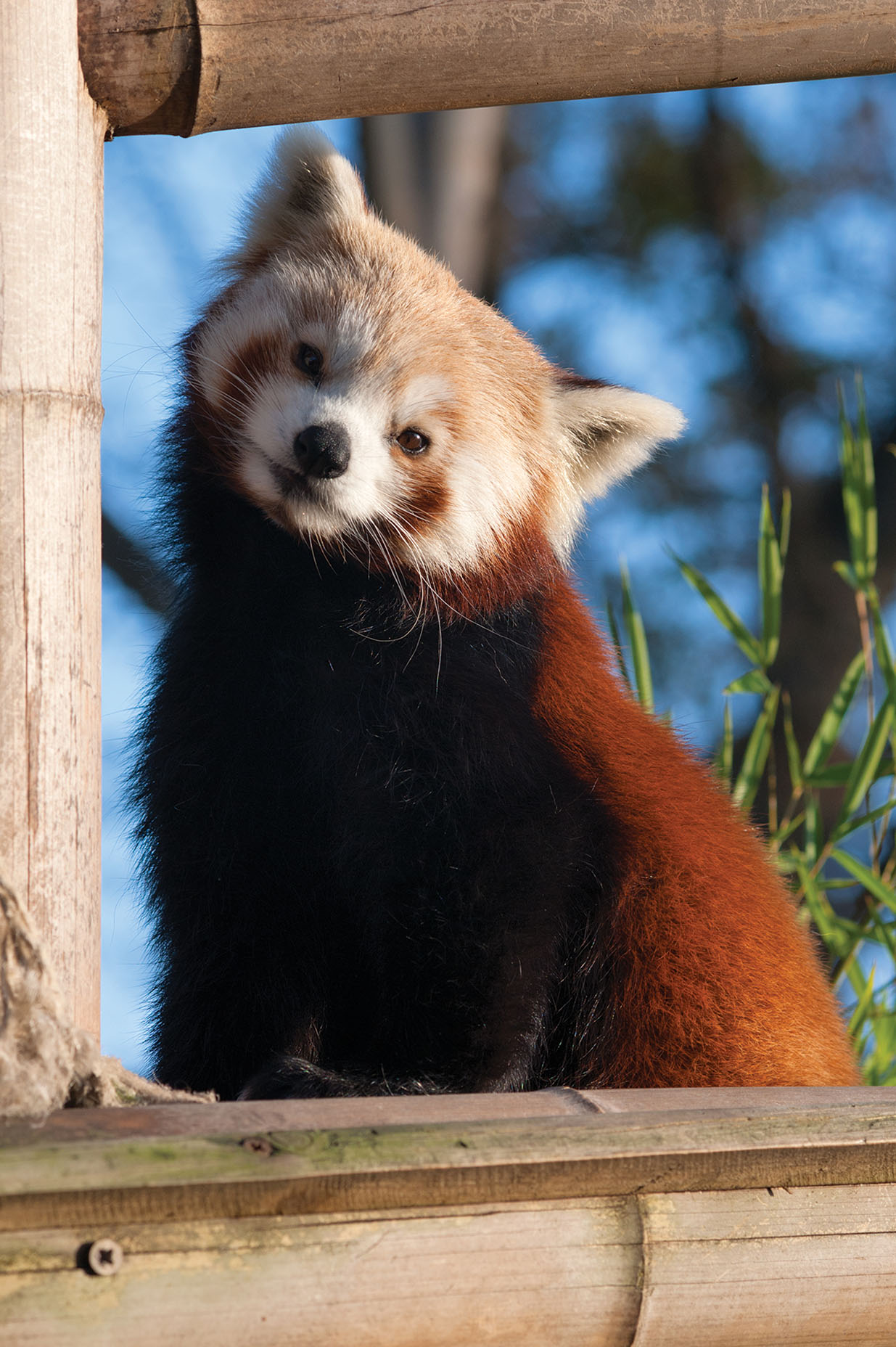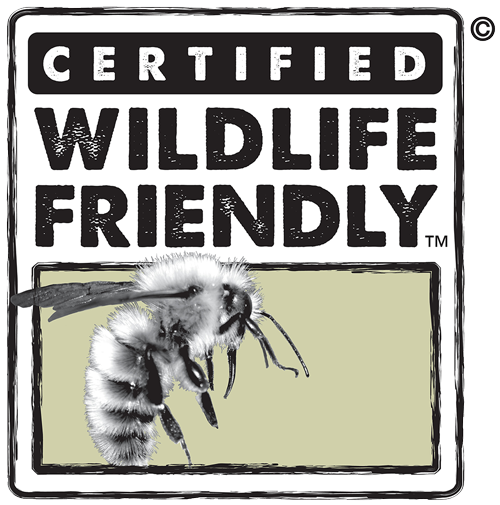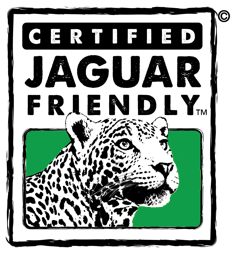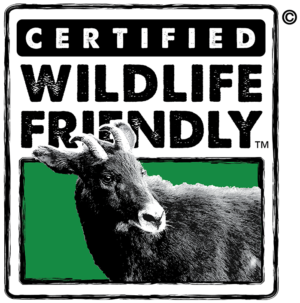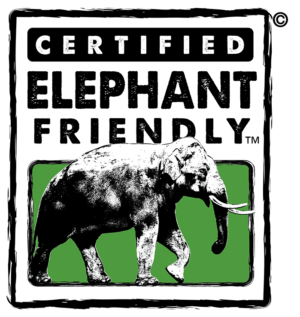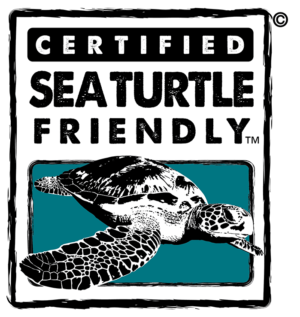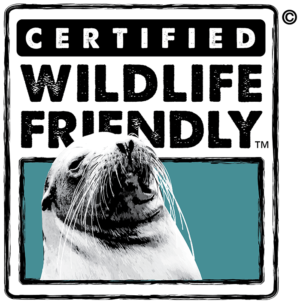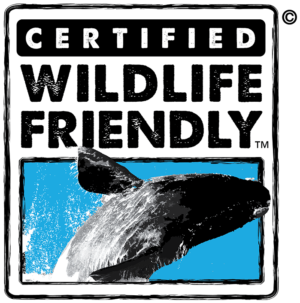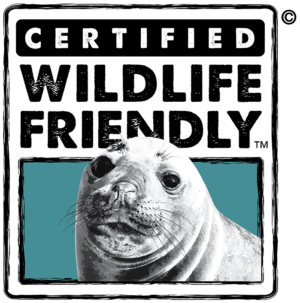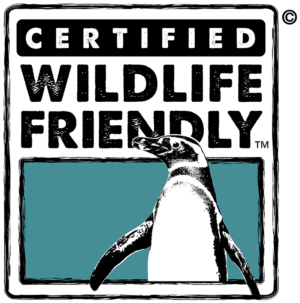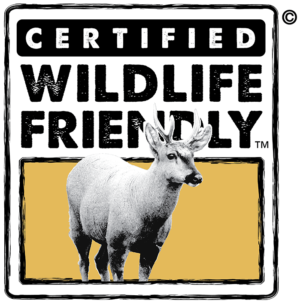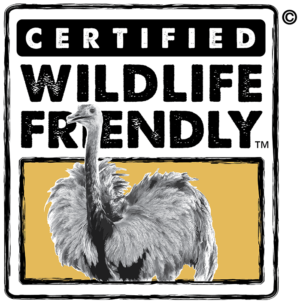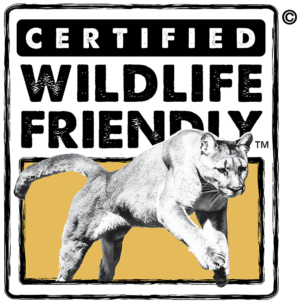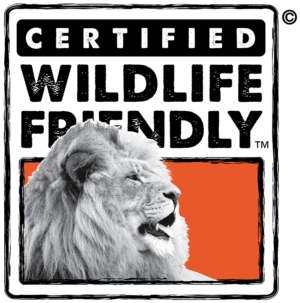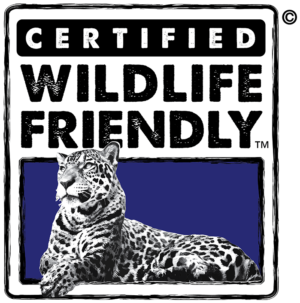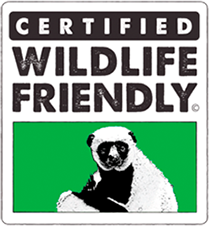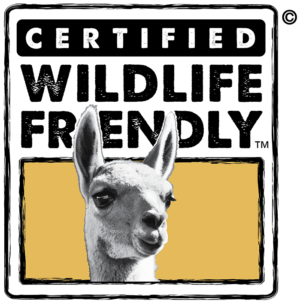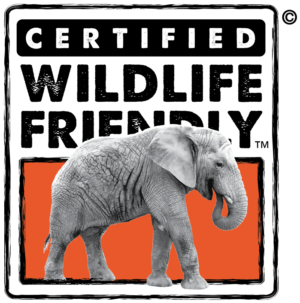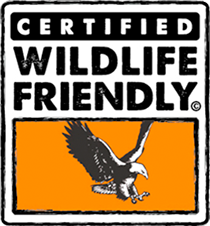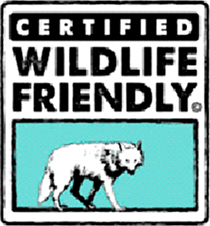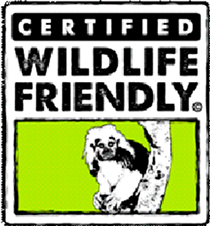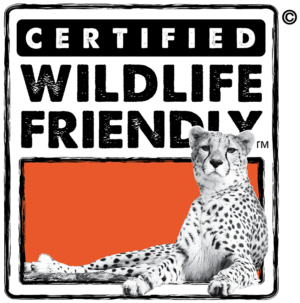2nd Life & WFEN Join Forces to Save Wildlife & Support Local Communities
Wildlife Friendly Enterprise Network becomes first wildlife conservation organization to benefit from 2nd Life’s Electronics Buy Back Program for nonprofits
RICHMOND, VIRGINIA – MAY 30 2018 2nd Life, a Richmond based company whose mission is to responsibly repurpose pre-owned consumer electronics and computing assets via proprietary remarketing techniques and cutting edge repair capabilities, has launched an exciting new partnership with the Wildlife Friendly Enterprise Network (WFEN) to benefit the world’s most endangered wildlife called “Cash in for Wildlife.”
The world generates over 44.7 million metric tonnes of e-waste – or 4500 Eiffel Towers – annually, according to the United Nations report Global E-waste Monitor 2017, with only 20% of that recycled through appropriate channels. This presents a challenge to sustainable development and achievement of the Sustainable Development Goals (SDGs). The amount of e-waste is expected to increase to 52.2 million metric tonnes by 2021. The UN estimated the total value of all raw materials present in e-waste to be approximately 55 Billion Euros in 2016, which is more than the 2016 Gross Domestic Product of most countries in the world. With many product life cycles measured in months as consumers trade up to newer technology, and a higher percentage of consumers owning multiple devices, circular economy models need to be adopted to encourage “closing the loop” through recycling while also mitigating pollution of the environment.
E-waste at the end of its life cycle includes toxic chemicals such as arsenic, mercury, flame-retardants and lead. When illegally or improperly disposed of these toxins seep into the ground, polluting soil and groundwater and contaminating microorganisms which fish feed upon; improper burning of e-waste releases toxins into the air. E-waste exposure can lead to diseases such heart disease, cancer and can damage DNA. Children are especially vulnerable to these health risks from e-waste exposure. Once food is contaminated these toxins and heavy metals move up the food chain leading to bioaccumulation and biomagnification in apex predators including humans.
“The electronics industry impacts humans, the environment and wildlife at both ends of its life cycle” said WFEN Director and Co-founder Julie Stein. “At the source, profits from illegally mined ‘conflict minerals’ like tin, tantalite or coltan, tungsten and gold, from the eastern part of the Democratic Republic of Congo, contribute to ongoing violence in the country and illegal miners living inside protected areas are negatively affecting endangered wildlife including the critically endangered Grauer’s Gorilla whose numbers have declined by 77%, as well as the endangered Eastern Chimpanzee, and the endangered Okapi which is only found in the DRC and whose population has plummeted by 50% due to the related triple threats of deforestation, mining and bushmeat hunting by illegal miners. Our enterprise model is to create alternative livelihood opportunities such as Wildlife Friendly™ sustainable farming, tourism and handicrafts for the benefit of wildlife and communities so that they do not have to resort to illegal activities which harm the environment. This new partnership with 2nd Life will help us on several fronts to achieve our mission.”
“We designed our proprietary consumer electronics buyback platform to support retailers like Best Buy and Amazon by offering a turnkey solution so that their customers can trade-in their no longer needed electronics towards purchase of new items,” said Seth Schmidt, Chief Marketing Officer for 2nd Life. During 2016 we identified an opportunity to create a fundraising oriented platform, building on what we learned serving the for-profit sector. Essentially, the fundraising solution allows consumers to sell their used electronics from over a dozen popular categories including smartphones, tablets, laptops, drones, digital cameras and more in order to support the causes that mean the most to them. Consumers are paid a competitive value for their items and can elect to donate all or a portion of their payment to the cause, in this case, the Wildlife Friendly Enterprise Network.”
According to Michael Feibelman, President and CEO of 2nd Life, the company has three solutions to address these challenges: IT Asset Disposition for responsible end-of-life corporate computing and mobile asset refreshes; community electronic waste collection services; and now, the buyback solution that supports non-profits like WFEN and others. The goal of The 2nd Life buyback program is to generate an ongoing revenue stream for these organizations and their partners by utilizing the 2nd Life Consumer Electronics Buyback Program, which allows consumers to quickly and easily get paid for their pre-owned consumer electronics while at the same time supporting a cause, in this case helping to protect wildlife around the world.
“We are extremely grateful to Michael and his team at 2nd Life for their interest in our work and are proud to be their first and only wildlife conservation partner,” said Ms. Stein. “This partnership makes 2nd Life our newest Founding Corporate Network member along with other leading edge sustainability companies.”
For companies or individuals who would like to become part of this program with 2nd Life to benefit wildlife please contact Seth Schmidt at 2nd Life or visit https://wfen.fundello.org to cash in your digital cameras and camcorders, cell phones, laptop computers, drones, and more for the benefit of the world’s endangered wildlife.
###
About 2nd Life
2nd Life extends the useful life of all electronics through it’s primary services of IT asset disposition (ITAD) for the enterprise, consumer based trade-in and buyback solutions for retailers, manufacturers, non-profits and schools and it’s expertise in electronics repair all the way up to circuit board level work. For more information, visit https://2ndlifeinc.com
About Wildlife Friendly Enterprise Network
WFEN and its family of brands represent grassroots farmers, ranchers, artisans, indigenous communities and conservation heroes from around the world including two World Bank Development Marketplace Award winners, a U.N. Equator Prize winner, leadership in the world’s marketplace for REDD+ Carbon Offsets, a Time Hero for the Planet, and a National Geographic Big Cats Initiative grantee. Certified Wildlife Friendly® products contribute to the conservation of over twelve million hectares of diverse wetlands, forests, and grasslands; protect keystone endangered species in Asia, Africa, Europe, the Americas, including the Snow Leopard, Elephant, Cheetah, and Wolf; and benefit over 200,000 people through increased food security, income and employment. For more information visit: www.wildlifefriendly.org
Pura Vida Roast Helps Protect Wildlife, People and Landscape
FOR IMMEDIATE RELEASE
(Phoenix, Ariz.) A new Arizona-roasted coffee will let you wake up and help save jaguars. The Arizona Center for Nature Conservation (ACNC)/Phoenix Zoo and Press Coffee Roasters introduce Pura Vida this week – the first certified Jaguar Friendly™ coffee produced in the U.S. The 12-ounce bags of whole beans go on sale at all Press Coffee locations and the Phoenix Zoo today with a portion of the proceeds supporting jaguar research led by the ACNC and ProCAT, an international nongovernmental organization focused on wildlife and habitat conservation.
In this first effort of the Jaguar Conservation Coffee project, the ACNC and ProCAT are working with Finca Las Alturas ranch in Costa Rica to support a landscape where farmers, jaguars and other wildlife co-exist. Jaguars are in decline in the wild due mainly to illegal hunting and habitat loss, with the overall jaguar population estimated to occupy less than 50 percent of its former range.
The ACNC’s Field Conservation Research Director, Dr. Jan Schipper, and other researchers have been working to design a habitat corridor that links Las Alturas with the Osa Peninsula, home to Costa Rica’s most threatened jaguar population. These two areas are separated by farms, plantations, homes, businesses and busy highways, thus, separating jaguars from the prey they need.
ACNC and ProCAT encourage growers in the corridor to adopt “jaguar-friendly” practices such as organic, pesticide-free farming, not allowing hunting on their land, and maintaining a mix of coffee and native trees/shrubs to provide animals with food and shelter. These practices are beneficial to all wildlife in the region, not just jaguars.
“Most of the landscapes between protected areas, areas that species need to cross to maintain natural connectivity, are dominated by people,” says Schipper. “We see this effort as an opportunity to promote species conservation together with local communities by exploring production systems that help reconnect native habitats.”
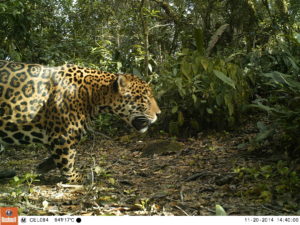
photo (c) ProCAT
Not only is this southern part of Costa Rica home to one of the largest populations of jaguars in that country, Costa Rica is also renowned as one of the most richly diverse coffee regions in the world.
“We are thrilled to welcome Jaguar Friendly™ coffee into our growing family of brands,” said Julie Stein, Executive Director and co-founder of the Wildlife Friendly Enterprise Network (WFEN). “By using certification as an innovative conservation tool we can achieve conservation goals while supporting local farmers in jaguar range countries and share these incredible stories of coexistence with aspirational consumers around the world. It’s truly a triple bottom line win.”
“This collaboration is such a special and unique opportunity for anyone in the coffee industry,” said Steve Kraus, owner of Press Coffee Roasters. “We’re honored to be able to partner with the Phoenix Zoo and work directly with Finca Las Alturas to bring this coffee and awareness of their conservation efforts to our community.”
Kraus describes the Pura Vida as creamy with notes of caramel and nougat. It’s an outstanding example of Costa Rican single origin roasts, he said.
Pura Vida is available for $16 for a 12-ounce bag of whole beans with $5 of the proceeds going to support ACNC and ProCAT’s jaguar conservation efforts. It’s available at Press Coffee’s six Phoenix locations and at the Phoenix Zoo. It is also available online at presscoffee.com and can be shipped worldwide.
About Press Coffee Roasters
Press has been Phoenix’ local coffee roaster since 2008. It shares its passion for specialty coffee by providing the highest quality coffee products, service and knowledge with customers and community every day. Named Phoenix’ best roaster two years running, Press Coffee has five Valley locations in Scottsdale, Tempe, Phoenix and Chandler. Visit Press Coffee online at presscoffee.com and on Facebook, Twitter and Instagram @presscoffee.
About the Arizona Center for Nature Conservation
The Arizona Center for Nature Conservation operates the Phoenix Zoo and the South Mountain Environmental Education Center. The ACNC advances the stewardship and conservation of animals and their habitats while providing experiences that inspire people and motivate them to care for the natural world.
The Phoenix Zoo is the only zoo in the Valley accredited by the Association of Zoos and Aquariums and is a non-profit zoological park, serving 1.3 million guests annually. The Zoo is home to more than 3,000 animals, many of which are endangered and threatened species. For information on upcoming events, exhibits and activities at the Phoenix Zoo, visit phoenixzoo.org. For information about the South Mountain Environmental Education Center, visit smeec.org.
About ProCAT
ProCAT, Proyecto de Conservacion de Aguas y Tierras (Water and Land Conservation Project), is a non-profit organization dedicated to the research and conservation of species and ecosystems, including the human component, from an interdisciplinary approach. Its purpose is the conservation of ecosystems, species and cultural wealth, integrating scientific, traditional and cultural knowledge; in search of the well-being of both biodiversity and human communities. For more information, visit (www.procat-conservation.org).
About Wildlife Friendly Enterprise Network (WFEN)
WFEN represents grassroots farmers, ranchers, artisans, indigenous peoples and conservation heroes from around the world including two World Bank Development Marketplace Award winners, a U.N. Equator Prize winner, leadership in the world’s marketplace for REDD+ Carbon Offsets and a Time Hero for the Planet. Certified products contribute to the conservation of over twelve million hectares of diverse wetlands, forests, and grasslands; protect keystone endangered species in Asia, Africa, Europe, and the Americas; and benefit over 200,000 people through increased food security, income and employment. For more information visit: www.wildlifefriendly.org
PRESS COFFEE MEDIA CONTACT:
Angela Muniz – Tin Can Marketing
480-966-2179; angela@tincanmarketing.com
PHOENIX ZOO MEDIA CONTACT:
Linda Hardwick
602-663-3254; lhardwick@phoenixzoo.org

(c) Primal Pastures
Warner Springs and Murrieta farm raises pastured chickens, rebuilds healthy, regenerative soils and grasslands, and coexists with wildlife.
FOR IMMEDIATE RELEASE
Warner Springs, CA, September 18, 2016 Most people don’t set up a wholesale pastured poultry operation in an area known for its mountain lion activity as much as for its orchards. Yet for farmer Paul Grieve of Pasturebird, flourishing habitat is an integral part of farming. “The important thing to us is that we build an ecosystem. Our role is to steward the land and grow a great environment for Mother Nature.”
On its newest farm site—100 acres of a 1000 acre parcel that meets the Palomar and Iron Spring Mountains in Warner Springs—Paul and his family are restoring a former potato field to permanent pasture. They ensure wildlife corridors remain open and use a variety of methods to protect their chickens, in order that a variety of wildlife can pass through the property. “We end up seeing snakes, rabbits, birds, worms, deer, and coyotes. I love being able to see those guys come through the farm but not interrupt our operations. Knowing that mountain lions are around makes it even better. It means we’re doing something right.”
This sentiment, together with a variety of husbandry practices to meet the farm’s stewardship mission, has enabled Pasturebird and sister location, Primal Pastures, to become Southern California’s first farm to achieve Certified Wildlife Friendly® status. Certified Wildlife Friendly® recognizes farms and ranches committed to regenerative practices that enable wildlife and livestock to coexist. The farm is working to restore perennial grasslands. It uses managed, multi-species grazing practices to improve soil. It conserves wildlife corridors, and relies upon proactive, humane practices to deter predators, among other key attributes. Along with peers around the globe, Pasturebird and Primal Pastures are part of a progressive wave of agriculture that models the critical role of farms and ranches in sustaining wildlife and habitat.
The farm’s efforts have been noticed by the Los Angeles Dodgers and the Lakers, both of which have accounts. “Pasturebird’s commitment to transparency and raising birds the way they were meant to live is truly inspiring,” says chef Alan Latourelle of Wolfgang Puck, another satisfied customer. Kitchen workers from the hospitality group’s Southern California staff recently toured the farm, gaining first-hand experience of what Pasturebird terms simply “real chicken.” Inspired by renowned grass farmer Joel Salatin of Virginia, Paul Greive and his family are committed to creating a scale-alternative to factory farming that cares for the land, the animals and consumers’ health.

(c) Primal Pastures
The farm started simply enough, 5 years ago, from the family’s search for healthy food for its own use: “We were paying a bunch of money for labels, but not good food,” explains Paul. “We wanted to eat meat that was not bad for the environment or our bodies,” he explains. “We couldn’t find what we were looking for.” And, so what began with an order of 54 chickens for personal use turned into a vocation for 2 generations and multiple branches of Paul’s family. Pasturebird, a wholesale operation opened in 2015, builds upon the success of Primal Pastures, the family’s direct-to-consumer farm in Murrieta.
Livestock guardian dogs are integral to the farm’s ability to coexist with wildlife. While predator losses were significant in the farm’s first true commercial year, the family quickly realized the use of lethal control “didn’t jibe at all with what we were doing,” says Paul. Rather, “we were working to “heal the land, heal the soil, and participate with nature.” Today, the farm raises its own Anatolian Shepherd/Great Pyrenees mix guardians. The dogs help to protect the flock, which is moved to fresh pasture daily in open-air, floorless chicken tractors. The farm vision includes having its operations become carbon-neutral in a few years, by offsetting the energy put into tractors and other equipment through its soil building activities.
The farm’s practices mean it is a regional model. Winston Vickers, a veterinarian with the Southern California Mountain Lion Project states: “I am thrilled that Paul and his team are leading the way in the region by taking measures to not only protect their chickens and raise healthier ones, but simultaneously helping to keep wildlife populations and the ecosystems healthy. I applaud their foresight and leadership, and urge others to follow their great example.”
Its efforts mean great food, too. “Seeing chickens that you can tell are happy and healthy is refreshing in this day and age. I never thought I would be so excited about chickens” continues Chef Latourelle. Thank you Pasturebird for what you do, it makes our jobs much easier.”
###
About Pasturebird and Primal Pastures
Primal Pastures (direct to consumer) and Pasturebird (wholesale) farms raise pastured chicken in Southern California. By rotating the chickens to fresh pasture every single day, the farm’s chicken is not only healthy and delicious but also goes beyond sustainability to rebuild healthy, regenerative soils and grasslands.
Instead of using antibiotics to fight disease within the flock, Pasturebird and Primal Pastures use a healthy environment of pasture, sunshine, fresh air, and space to prevent sickness. Instead of marketing vegetarian-fed chicken (chickens are not vegetarians), we want our chickens to eat as many bugs and worms as possible. And instead of hiding our farm from the public, we know that our best marketing is transparency, so we regularly open the ranch for tours and events. For more information, contact Paul Greive via 855-4PASTURE or paul@pasturebird.com and visit www.pasturebird.com and www.primalpastures.com
About Wildlife Friendly Enterprise Network
The Wildlife Friendly Enterprise Network and its Certified Wildlife Friendly® and Predator Friendly® programs represent farmers, ranchers, artisans and conservation heroes from around the world. Participating farms in North America maintain and enhance wildlife habitats and employ a mix of careful observation and proactive practices to allow wildlife and livestock to coexist.
Certified Wildlife Friendly® products contribute to the conservation of over twelve million hectares of diverse wetlands, forests, and grasslands; protect keystone endangered species in North America, Europe, Africa, Asia and Latin America, including wolves, elephants, cheetahs, red pandas and snow leopards, and benefit over 200,000 people through increased food security, income and employment. For more information visit: www.wildlifefriendly.org
Contact:
Paul Greive, Chief Executive Officer
Pasturebird Poultry Company
855-4PASTURE; paul@pasturebird.com
Sustainable products promote coexistence between native wildlife
and fiber production
FOR IMMEDIATE RELEASE
The Wildlife Friendly Enterprise Network (WFEN) and the Wildlife Conservation Society Argentina (WCS) are pleased to announce the Wildlife Friendly™ certification of high quality mohair, merino wool, and cashmere, in recognition of the efforts of a cooperative of criancero herders to co-exist with the region’s native wildlife.

Local mixed-breed dog working as a guarding dog for goats. Credit: Alejandro Gonzalez.
Following years of work to improve land management practices and fiber quality, and support from WCS, 12 herders of the Neuquén, Argentina-based Programa Mohair are now offering both raw fiber and spun yarn for sale, under the Fibras del Viento (Fibers of the Wind) label. Fibers are available in natural colors and dyes, including green from Yerba mate, the national beverage of Argentina. Fine yarn and finished goods are spun and handcrafted at a small mill operated by cooperative members.
“The commitment of these herders participating in the Programa Mohair shows that it is possible to improve land use practices and combine increased product value with real conservation results. This is a high impact social and wildlife achievement that we hope will inspire other livestock producers in Patagonia,” said Guillermo Harris, WCS Argentina Director.

Puma in Laguna Blanca National Park, where some of the certified herders live. Credit: WCS Argentina
The actions of the livestock herders to coexist with native wildlife are important to the conservation of the unique fauna criollo dogs to protect their livestock from predators. Although their family farms are small, and they often struggle to maintain their livelihood, the herders are committed to sustainable production for the good of their land, livestock, and native wildlife.
“We are watching a Wildlife Friendly™ fiber movement unfold right now across Patagonia” said Julie Stein, Executive Director and Co-founder of WFEN. “Part of our mission is to create communities of practice that share innovations, challenges and successes across landscapes. These Programa Mohair herders and a growing number of ranching neighbors are at the leading edge of that effort. Designers, consumers and companies are taking note of their compelling stories of coexistence. Each step forward by these producers has been the result of hard work, and is thrilling to witness. We congratulate these heroes of conservation for their actions.”
Consumers wishing to purchase these responsibly produced fibers can write to ventas.fibrasdelviento@gmail.com or coopeagropezapala@gmail.com

Products made from mohair and mohair-merino blends. Credit: Susan Walker
###
About Wildlife Friendly Enterprise Network
WFEN and its Certified Wildlife Friendly®, Predator Friendly®, Certified Gorilla Friendly™, Jaguar and Sea Turtle Friendly™ certification programs represent grassroots farmers, ranchers, artisans, indigenous peoples and conservation heroes from around the world including two World Bank Development Marketplace Award winners, a U.N. Equator Prize winner, leadership in the world’s marketplace for REDD+ Carbon Offsets, a Time Hero for the Planet, and a National Geographic Big Cats Initiative grantee. Certified Wildlife Friendly® products contribute to the conservation of over twelve million hectares of diverse wetlands, forests, and grasslands; protect keystone endangered species in Asia, Africa, Europe, and Latin and North America, including the Snow Leopard, Elephant, Tiger, Cheetah, Red Panda, and Wolf; and benefit over 200,000 people through increased food security, income and employment. For more information visit: www.wildlifefriendly.org
About WCS (Wildlife Conservation Society)
MISSION: WCS saves wildlife and wild places worldwide through science, conservation action, education, and inspiring people to value nature. To achieve our mission, WCS, based at the Bronx Zoo, harnesses the power of its Global Conservation Program in nearly 60 nations and in all the world’s oceans and its five wildlife parks in New York City, visited by 4 million people annually. WCS combines its expertise in the field, zoos, and aquarium to achieve its conservation mission. Visit: newsroom.wcs.org Follow: @WCSNewsroom. For more information: 347-840-1242.
Visit: www.wcsargentina.org;
https://www.facebook.com/TheWCS;
https://www.youtube.com/user/WCSMedia
Follow: @thewcs
Contact:
Wildlife Friendly
The future Patagonia National Park, Chile, is now Certified Wildlife Friendly™ showcasing flagship coexistence efforts, wildlife conservation and wild lands protection for tourists while supporting the local economy
FOR IMMEDIATE RELEASE
AYSÉN REGION, CHILE: – APRIL-2017– The Wildlife Friendly Enterprise Network (WFEN), a global community dedicated to the development and promotion of products and tourism that contribute to the conservation of threatened wildlife and to the economic vitality of rural landscapes, is pleased to announce the awarding of Wildlife Friendly™ Certification to Patagonia Park, part of Conservacion Patagonica whose mission is to promote the creation of national parks in Patagonia (Argentina and Chile), in collaboration with neighboring communities and local, regional, and national governments, that save and restore wildlands and wildlife, inspire care for the natural world, and generate healthy economic opportunities for local communities.
Originally one of the region’s largest sheep ranches, Estancia Valle Chacabuco changed ownership several times over the past century, resulting in an overgrazed and degraded landscape. When Kris and Doug Tompkins first visited the Valle Chacabuco Valley in 1995, CONAF (Chile’s National Forest Service) had long recognized the need to prioritize the protection of these unique and biodiverse ecosystems. With help from Tompkins Conservation and Conservacion Patagonica, the 170,500-acre Estancia Chacabuco was acquired. In subsequent years several other adjacent properties have been purchased from willing sellers, bringing the currently total area of protected land to close to 200,000 acres. Eventually, Patagonia Park will be combined with the Jeinimeni National Reserve to the north and the Tamango National Reserve to the south, to create a 640,000-acre Patagonia National Park. This will allow bi-national trans-boundary access across the border of Chile and Argentina and will provide ecosystem continuity, wildlife corridors, and tourist driving and hiking circuits.
“For Conservación Patagonica it is an honour to receive the Wildlife Friendly™ Certification in Chile which is a 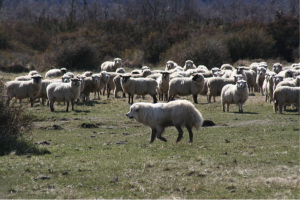
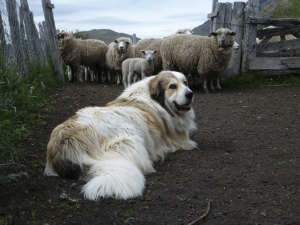
Efforts at Patagonia Park include extensive grasslands restoration, removal of over 400 miles of fencing which fragmented critical habitat by blocking wildlife corridors and entangling species like Guanacos in barbed wire leading to mortality. There is also an endangered Huemul Deer recovery program, a breeding center for Darwin’s Rheas, an Andean Condor reintroduction effort, and Puma monitoring, as well as a thriving livestock guard dog program to protect livestock from predation.
Patagonia Park is an initiative led by Conservación Patagonica since 2004, whose main goal throughout has been the formal donation of the land to the Chilean State to create Patagonia National Park, an agreement which was finalized and signed by the Chilean President President Michelle Bachelet on March 15 2017.
“The need for people and wildlife to not only coexist but to benefit each other is a challenge for protected areas and neighboring lands and communities,” said Cristián Saucedo, Conservation Director. At Conservación Patagónica, we believe this, and we invite other Chilean initiatives to be part of the Wildlife Friendly Enterprise Network, because we see this as a unique opportunity which links tourism, conservation, local communities and caring for the land as all part of our long- term vision for wild lands in Chile.”
###
About Wildlife Friendly Enterprise Network
WFEN and its certification programs represent grassroots farmers, ranchers, artisans, indigenous peoples and conservation heroes from around the world including two World Bank Development Marketplace Award winners, a U.N. Equator Prize winner, leadership in the world’s marketplace for REDD+ Carbon Offsets, a Time Hero for the Planet, and a National Geographic Big Cats Initiative grantee. Certified Wildlife Friendly® products contribute to the conservation of over twelve million hectares of diverse wetlands, forests, and grasslands; protect keystone endangered species in Asia, Africa, Europe, and Latin and North America, including the Snow Leopard, Tiger, Elephant, Cheetah, Red Panda, and Wolf; and benefit over 200,000 people through increased food security, income and employment. For more information visit: www.wildlifefriendly.org
About Patagonia Park
Conservacion Patagonica works to create national parks in Patagonia that save and restore wildlands and wildlife, inspire care for the natural world, and generate healthy economic opportunities for local communities. For more information see www.tompkinsconservation.org / www.kristinetompkins.com / www.parquepatagonia.org
Tompkins Conservation: https://www.facebook.com/tompkinsconservation/
Patagonia Park: https://www.facebook.com/parquepatagoniaoficial/
Conservacion Patagonica: https://www.facebook.com/ProtectPatagonia/
Conservacion Patagonica: https://www.instagram.com/conservacionpatagonica/
Patagonia Park: https://www.instagram.com/parquepatagonia/
Contact:
Patagonia Park
Dr. Paula Herrera, Livestock guardian dog program: pherrera@conservacionpatagonica.cl
Dr. Cristián Saucedo, Director of Wildlife Projects: csaucedo@conservacionpatagonica.cl
Alison Kelman, US Media Contact: alison.kelman@tompkinsconservation.org
Wildlife Friendly
Julie Stein: Julie@wildlifefriendly.org
Tea companies join forces with wildlife conservation efforts to launch the world’s first certification program aiming to provide incentives for conservation of elephants in the wild
FOR IMMEDIATE RELEASE
ASSAM, India – November 29, 2016 – The Wildlife Friendly Enterprise Network (WFEN) and the University of Montana jointly announce a first-of-its kind certification program which will empower consumers to play an active role in conservation, and provide tea-growing companies with a financial incentive to make positive changes for elephants within tea plantations. The Balipara Foundation of India has spearheaded support for this initiative by extending an invitation to Indian tea companies to join the effort to implement specific changes that top elephant experts agree will have positive impacts on Asian elephant conservation.
Injury, electrocution, poison and other conflicts with humans, combined with widespread habitat loss and degradation, have left this species under great pressure to survive in the wild long-term. Asian elephant populations are declining faster than their better-known African elephant cousins. In a number of countries Asian elephants are extinct or nearly extinct in the wild, although the media and general public remain largely unaware that this species may someday face widespread extinction if the trend is not reversed with strategic and well-timed conservation interventions.
Certified Elephant Friendly™ Tea has been developed as a result of years of research and community-based conservation effort in Assam, the primary tea growing region in India, focusing on identifying the key threats to elephants and strategies to address them. As a partner in this new initiative, University of Montana’s Lisa Mills says, “It is time to recognize that the very things that we buy across the globe are often in direct odds with the conservation of wildlife. If the products we purchase were an opportunity to reverse this trend, for elephants to last a bit longer and roam a bit more freely on this earth, would we pay the price? Can we have our tea and drink it too?” With rapid growth in the tea market in the U.S. in 2015 and 2016, and consumers becoming increasingly aware of and concerned about how their spending impacts the environment, retailers and U.S. based tea companies have expressed early interest in marketing products certified under this program. There is also interest in certification of other products as Elephant FriendlyTM, such as coffee grown in elephant movement areas in south India.
“Elephant populations are in trouble wherever they exist around the world,” said WFEN Director Julie Stein. “Poaching and the illegal wildlife trade are having devastating effects on populations, with habitat conversion and human-elephant conflict both creating additional compounding mortality. Elephants simply cannot reproduce fast enough to survive this crisis. These are complex issues to solve and global citizens are often left feeling helpless as they watch species blink out before their eyes and in their own lifetimes, but now consumers can be empowered to do something tangible to reward ethical companies that are going the extra mile to coexist with elephants so that their children will not live in a world without elephants.”
The Elephant Friendly™ Tea Certification Program was announced at the Balipara Foundation’s Eastern Himalayan Naturenomics™ Forum in November 2016 in Guwahati, India, which was held in conjunction with the IUCN Asian Elephant Specialist Group meeting. This important gathering of the some of the world’s top Asian Elephant experts was also an opportunity to bring major tea industry representatives together to plan action steps in support of the
long-term survival of Asian elephants. Discussions around the concept of Elephant Friendly Tea™ included major tea companies such as Amalgamated Tea (APPL), the second largest tea company in India, the India Tea Association, other tea companies and representatives from leading conservation organizations from across the globe.
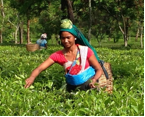
Photo © Lisa Mills
The tea-growing estates of India, established in the 1800’s, replaced former elephant habitat with plantations. Worker homes, roads, irrigation ditches, fencing and other human-driven activity expanded with the growth of the industry and continues to this day. These non-Elephant Friendly barriers pose a real threat to ancient migration patterns and thus the survival of elephant herds that must access reliable sources of water and food, as well as safe places to raise their young. Because natural cycles of native forest growth depend on seed dispersal by elephants as they move and deposit undigested tree seeds to forest openings, elephants are often referred to as the “Farmers of the Forest.” Elephant Friendly Tea™ will give tea drinkers around the world an important role in helping to ensure these iconic and charismatic animals have a future in the wild.
###
About University of Montana
The University of Montana is part of the Montana State University Education System in the U.S.A., and is home to the top-ranked Wildlife Biology Program in North America, as well as to one of the top Business Schools in the nation that emphasizes sustainable business development. Through the university’s Broader Impacts Group, wildlife conservation research and enterprise come together to help address some of the world’s toughest challenges around conservation in the face of major global changes. https://www.umt.edu/
About Wildlife Friendly Enterprise Network
WFEN is the global brand leader on threatened and endangered species-focused certification programs, from Gorilla Friendly™ to Predator Friendly® to Jaguar and Sea Turtle Friendly™ certification programs. WFEN represents global companies as well as grassroots farmers, ranchers, artisans, indigenous communities and conservation heroes from around the world including two World Bank Development Marketplace Award winners, a U.N. Equator Prize winner, leadership in the world’s marketplace for REDD+ Carbon Offsets, a Time Hero for the Planet, and a National Geographic Big Cats Initiative grantee. Certified Wildlife Friendly® products contribute to the conservation of over twelve million hectares of diverse wetlands, forests, and grasslands; protect keystone endangered species in Asia, Africa, Europe, the Americas, including the Snow Leopard, Elephant, Tiger, Cheetah, and Wolf; and benefit over 200,000 people through increased food security, income and employment. For more information visit: www.wildlifefriendly.org
Contacts:
Julie Stein, Executive Director
Wildlife Friendly Enterprise Network
julie@wildlifefriendly.org
Lisa Mills, Program Manager, Elephants and Tea
Broader Impacts Group, University of Montana
lisa.mills@mso.umt.edu
Banner photo credit: Subit Sawra
New conservation enterprise, Jungle Organics™, supports smallholder women farmers producing high quality spices in harmony with wildlife
FOR IMMEDIATE RELEASE
NEW DELHI, India – OCTOBER 26 2016 The Wildlife Friendly Enterprise Network (WFEN) and Jungle Organics™ headquartered in New Delhi, India are pleased to announce that Turmeric Powder, Ground Red Chili Pepper and Coriander Powder grown adjacent to Jim Corbett National Park – core habitat for tigers, leopards, elephants and other globally vulnerable wildlife – have earned Wildlife Friendly™ certification under the Jungle Organics™ brand. The spices are grown on women-operated organic farms that provide safe passage through an important corridor for wildlife as well as access to fresh water sources. In addition, unlike many other crops which are attractants to wildlife, these aromatic spices are not an attractant and actually tend to reduce human-wildlife conflict leading to better attitudes and greater acceptance among local communities towards wildlife. As a result there are fewer retaliatory killings of big cats which are already in jeopardy globally.
“This project hits the mark on so many counts,” said WFEN Director Julie Stein. “From research around the world we know that empowering rural women is the key to food security, nutrition and poverty reduction. And with apex predators in trouble everywhere we are delighted to welcome not only our first enterprise in India – but our first protecting tigers – a flagship endangered species with only a few thousand remaining in breeding populations in the wild. Jungle Organics™ is truly a leading edge conservation enterprise and was formed from inception around the concept of Wildlife Friendly™ farming. We are thrilled to see this kind of entrepreneurial innovation popping up in different ways around the world and supporting wildlife, women and their families. It is proof-of-concept that coexistence with large carnivores can work to support the triple bottom line of people, planet and profit.”
“Subsistence farmers are coexisting with wildlife across India, making the crops they produce and the role their farms play in allowing wildlife to roam free truly unique. The presence of tigers and leopards on the farms is an indicator of the health of the ecosystem and means that the spices and herbs are grown in pristine environments thriving on water from Himalayan rivers and nutrient rich soils. This results in higher potency spices and herbs with better medicinal properties that can contribute to health and well-being. We are excited to see recognition of the linkage between Wildlife Friendly™ farming and production of superior quality ingredients based on the interest coming from Delhi, Bombay and other cities, to purchase our products” said Jungle Organics™ Founder Kaavya Varma, who is an expert in implementing green economy strategies. “This is particularly critical because if spices that are used on an everyday basis can also contribute to protecting big cats then it is much easier for everyone to participate in saving tigers and leopards and can make conservation more mainstream.”
“With the multiple human-caused threats faced by wildlife, it is significant that Uttarakhand is the first place where the State Government has been forward thinking in supporting this enterprise” Ms. Varma explained, “and the State Organic Commodity Board has shown great leadership in partnering with Jungle Organics™ to enhance the livelihoods of small-holder farmers and create awareness amongst farmers about wildlife. These agricultural practices can have a significant impact on conservation and the incomes of women farmers in remote areas.”
In addition to tigers, other threatened and endangered wildlife using these forests and farms as habitat and corridors include leopards, Asiatic black bears, tigers, Himalayan serow, ghural, pangolins, elephants, peacocks, wild boars, sambar deer, porcupines, monkeys and kakar or barking deer. The farms are unfenced, making them particularly Wildlife Friendly™, and farmers use low tech but highly effective and labor intensive foot patrols throughout the night in separate groups of women or men making noises to reduce crop destruction.
Uttarakhand State contains the highest amount of forest cover in India and is home to 1000 leopards and 340 tigers, 10% and 16%, respectively, of the total populations of both animals in India. Leopards and tigers are threatened everywhere they still exist by poaching, a decrease in their prey base, protected area encroachment, deforestation, and roads. Nearly 70% of the farmers in India are smallholder family operations and many of them live in landscapes that overlap with wildlife making it especially important that Indian models of conservation support these farmers and that best practices which support wilderness and biodiversity conservation are replicated in other States beyond Uttarakhand.
###
About Jungle OrganicsTM
Jungle OrganicsTM works with 100% organic certified farmers who consciously choose to live by forests and wildlife, for the authenticity of their produce, even at the cost of low-yields on their lands. Using wildlife friendly practices, they ensure minimal human intervention to avoid taking away from the originality of the spices and herbs they grow. Our goal is to offer authentic spices and herbs, by supporting and resurrecting pristine farming practices that emphasize coexistence with wildlife, and thus, reduce wildlife-human conflict and the consequent damage that follows. For more information, email team@jungleorganics.in or visit www.jungleorganics.in.
About Wildlife Friendly Enterprise Network
WFEN and its Certified Wildlife Friendly®, Predator Friendly®, Certified Gorilla Friendly™, and Jaguar Friendly™ and Sea Turtle Friendly™ certification programs represent grassroots farmers, ranchers, artisans, indigenous communities and conservation heroes from around the world including two World Bank Development Marketplace Award winners, a U.N. Equator Prize winner, leadership in the world’s marketplace for REDD+ Carbon Offsets, a Time Hero for the Planet, and a National Geographic Big Cats Initiative grantee. Certified Wildlife Friendly® products contribute to the conservation of over twelve million hectares of diverse wetlands, forests, and grasslands; protect keystone endangered species in Asia, Africa, Europe, the Americas, including the Snow Leopard, Elephant, Tiger, Cheetah, and Wolf; and benefit over 200,000 people through increased food security, income and employment. For more information visit: www.wildlifefriendly.org
Contacts:
Julie Stein, Executive Director
Wildlife Friendly Enterprise Network
julie@wildlifefriendly.org
Kaavya Varma, Founder & CEO
Jungle OrganicsTM
kaavya@jungleorganics.in
First-of-its-kind Certified Jaguar Friendly™ label will empower farmers and ranchers, consumers and businesses to protect the largest wild cat in the Western Hemisphere
FOR IMMEDIATE RELEASE
Bogotá, Colombia, Heredia, Costa Rica – MAY 04 2016 The Wildlife Friendly Enterprise Network (WFEN) and Proyecto de conservación de Aguas y Tierras (ProCAT Colombia)-Colombia and Sierra to Sea Institute (S2S) – Costa Rica, announce a new collaborative effort to harness market forces for big cat conservation called Jaguar Friendly™. Farmers, ranchers and agricultural producers in these three important jaguar range countries will put in place Jaguar Friendly™ farming practices that maintain forest canopy to protect these iconic cats in rural agricultural landscapes and enable connectivity between protected areas. Through this initiative, companies that source products grown on land actively used by jaguars will 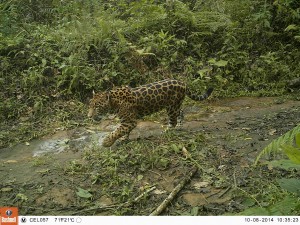
“We are really excited about the Jaguar Friendly™ initiative” said WFEN Director Julie Stein, “because it will allow us to test the idea of using certification, incentives, and market forces to ensure safe passage for these cats as they leave protected areas and move across agricultural lands, where they sometimes come into conflict with people or livestock. Global consumers are increasingly aware that wildlife, especially large carnivores, are often the invisible collateral damage of our food production systems.
Jaguar Friendly™ will give them a way to vote for coexistence with their wallets.”
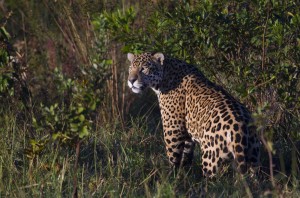
Dr. José F. González-Maya, the Scientific Director for ProCAT Colombia and The Sierra to Sea Institute,Costa Rica, has been advocating for this change as well. “By promoting ‘predator-friendly’ agricultural practices, the Jaguar Friendly™ initiative provides incentives for farmers making jaguars an asset rather than a threat,” said Dr. González-Maya.
“We live in a world where humans are part of the economy of nature, whether we like it or not. Our ultimate vision is to create an economy that supports nature rather than working against it,” said Dr. Jan Schipper, Postdoctoral fellow for Arizona State University and the Arizona Centre for Nature Conservation/Phoenix Zoo and cofounder of Sierra To Sea Institute, Costa Rica. “If we succeed, we will have a healthier planet. We must empower local people who hold the future of these native animals in their hands to celebrate them and see them as a sign of successful land restoration. The Jaguar Friendly™ initiative will be a catalyst to include biodiversity in the sustainability movement.”
While Jaguars still exist in 18 countries from Mexico to Argentina, they have been eradicated from 40% of their historic range and are extinct in Uruguay and El Salvador. A jaguar was recently documented on video in the U.S. Yet, there has not been evidence of a U.S. breeding population for more than 50 years. Top threats to the jaguar include deforestation, habitat fragmentation and persecution by humans.
##
About ProCAT-Colombia and Sierra to Sea Costa Rica
ProCAT Colombia and Sierra to Sea Costa Rica are sister NGOs that work to develop biological research and to promote social and cultural sustainable development goals using and interdisciplinary approach including the human and natural dimensions of wild felid conflicts. This integrated conservation strategy to protect key species and vulnerable ecosystems in Talamanca, Costa Rica, and the Andes and Caribbean regions of Colombia works to ensure the wellbeing of biodiversity and humans in functional landscapes with shared benefits.www.procat-conservation.org
About Wildlife Friendly Enterprise Network
WFEN and its Certified Wildlife Friendly®, Predator Friendly®, Certified Gorilla Friendly™, and Jaguar Friendly™ certification programs represent grassroots farmers, ranchers, artisans, indigenous communities and conservation heroes from around the world including two World Bank Development Marketplace Award winners, a U.N. Equator Prize winner, leadership in the world’s marketplace for REDD+ Carbon Offsets, a Time Hero for the Planet, and a National Geographic Big Cats Initiative grantee. Certified Wildlife Friendly® products contribute to the conservation of over twelve million hectares of diverse wetlands, forests, and grasslands; protect keystone endangered species in Asia, Africa, Europe, the Americas, including the Snow Leopard, Elephant, Cheetah, and Wolf; and benefit over 200,000 people through increased food security, income and employment. For more information visit: www.wildlifefriendly.org
Contacts:
Julie Stein, Executive Director
Wildlife Friendly Enterprise Network
julie@wildlifefriendly.org
José F. González-Maya, Scientific Director
Diego Zárrate-Charry, Research Coordinator
ProCAT Colombia & Sierra to Sea Costa Rica
jfgonzalez@procat-conservation.org
dzarrate@procat-conservation.org
DotAsia Becomes First Global Internet Company to Join the Wildlife Friendly® Enterprise Network Supporting Tiger Conservation
FOR IMMEDIATE RELEASE
HONG KONG– 20 JAN 2016 – DotAsia Organisation, who operates the global “.Asia” Top-Level Domain (TLD) as a not-for-profit organization with a mandate to promote internet development and adoption in Asia, and the Wildlife Friendly Enterprise Network (WFEN), a global community dedicated to protecting wildlife in wild places and on private agricultural lands in between, are pleased to announce an exciting new collaboration to raise awareness about the important role of internet companies in the poaching crisis and the trade in illegal wildlife parts online. Using Tigers as the flagship species, this effort will assist companies to take positive, productive, practical and achievable steps to address this crisis which could lead to tragic consequences for highly endangered species like Tigers. This effort will also promote legal and certified Tiger Friendly™ products and services that will empower global companies and their consumers to create change on-the-ground and support Tiger conservation and improved livelihoods for rural communities who often turn to illegal activities like poaching to feed their families in Asia.
“Building on the appointment of Ajitora, our PR character for ‘.Asia’, as a Tx2 Ambassador, we are excited to see Aji already hard at work in pulling together this strategic collaboration with WFEN” said Edmon Chung, CEO of DotAsia. “The Tx2 goal is to #doubletigers in the wild by 2022, and is supported by organizations including GTF, WWF and TRAFFIC. Promoting Tiger Friendly™ products, services and corporate practices broadens the reach of Tx2 in Asia. Internet and IT companies are not usually thought to be directly impacting wildlife environment, but unknowingly, illegal wildlife trade is proliferating online, while poachers abusively mine social media data for criminal activities. The work with WFEN will pioneer Wildlife Friendly® guidelines and principals for Internet related businesses.”
“This groundbreaking new Tiger Friendly™ collaboration with DotAsia Organisation and other internet technology companies is a positive step towards stemming the tide on poaching and the illegal wildlife trade especially in Asia where much of the demand originates. Poaching is considered to be one of the most immediate threats to the survival of many species globally and so we applaud DotAsia for their commitment and leadership in taking a proactive stance on this critical wildlife issue for imperiled species like Tigers with as few as 3200 of the big cats remaining in the wild,” said WFEN Executive Director and co-founder Julie Stein.
WFEN Founding Corporate Network Members share the WFEN vision for a world where people and wildlife not only coexist but thrive and are committed to sourcing and creating beautiful products that are made in a manner that respect the producers, land, and wildlife and tourism that engages tourists as partners in conservation. WFEN membership is open to businesses and non-governmental organizations who are committed to the WFEN mission and who actively contribute to Wildlife Friendly® business practices. This contribution may be through building Wildlife Friendly® supply chains, production, sourcing and selling Certified Wildlife Friendly® products, building increased awareness and demand with consumers, and implementing best practices for biodiversity conservation and business, and addressing the illegal wildlife trade.
###
About DotAsia Organisation
DotAsia (https://www.dot.asia) is a registered not-for-profit charitable organization (DotAsia Foundation: IRD 91/12820) with a mandate to promote Internet development and adoption in Asia. DotAsia operates the “.Asia” top-level domain (TLD) as part of the core global Internet infrastructure, and is formed as an open consortium of official domain authorities in Asia, including .CN (China), .JP (Japan), .KR (Korea), .IN (India), .NZ (New Zealand), .PH (Philippines), etc., and regional Internet organizations including APNIC, APNG, APIA, APCERT, APRALO and APTLD, etc.
Since the launch of “.Asia”, DotAsia has proactively contributed to the Asia community, supporting many charitable projects, e.g.: One-Laptop-Per-Child Asia Pacific (https://www.olpc.asia), Information Society Innovations Fund (https://www.isif.asia), Asia Pacific Regional Internet Governance Forum (https://www.aprigf.asia), Food Revolution Day initiative with Jamie Oliver (https://www.frd.asia), NetMission.Asia (youth volunteer program &network — https://www.netmission.asia), Go.Asia (https://www.go.asia), and many more.
About Wildlife Friendly Enterprise Network
WFEN and its Certified Wildlife Friendly® and Predator Friendly® certification programs represent grassroots farmers, ranchers, artisans, indigenous communities and conservation heroes from around the world including two World Bank Development Marketplace Award winners, a U.N. Equator Prize winner, leadership in the world’s marketplace for REDD+ Carbon Offsets, a Time Hero for the Planet, and a National Geographic Big Cats Initiative grantee. Certified Wildlife Friendly® products contribute to the conservation of over twelve million hectares of diverse wetlands, forests, and grasslands; protect keystone endangered species in Asia, Africa, and Latin and North America, including the Snow Leopard, Elephant, Cheetah, and Wolf; and benefit over 200,000 people through increased food security, income and employment. For more information visit: www.wildlifefriendly.org
Contacts:
DotAsia Organisation
Beatrice Chan: beatrice@dot.asia
Ajitora: ajitora@dot.asia
Wildlife Friendly
Julie Stein: Julie@wildlifefriendly.org
Aveda Becomes the First Global Beauty Brand to Join the Wildlife Friendly® Enterprise Ntwork Supporting People and Planet
FOR IMMEDIATE RELEASE
NEW YORK – 18 DEC 2015 – Aveda, whose mission is to care for the world we live in, and the Wildlife Friendly Enterprise Network (WFEN), a global community dedicated to supporting products that conserve threatened wildlife and contribute to economic vitality in rural landscapes, are pleased to announce an exciting new partnership dedicated to protecting wildlife while supporting local communities.
Beginning in 2002, Aveda has sourced handcrafted lokta bark paper from Himalayan Bio-Trade Pvt. Ltd (HBTL), an organization in Nepal, owned by a consortium of community-based groups, for their holiday and year-round gifting boxes. Aveda’s purchase of lokta paper from Nepal helps support this local industry, which creates local employment to help keep families together. It also helps reverse local deforestation in the region — in 2009, the lokta paper earned Wildlife Friendly® certification which helps to protect 42,000 acres of forest, maintaining critical wildlife corridors for 21 iconic endangered species, including the grey wolf, snow leopard, red panda and wild yak.
“Fueled by a common passion for protecting wildlife, our partnership with Wildlife Friendly Enterprise Network is an example of Aveda’s efforts to make a meaningful commitment to action in service to the Earth,” says Dominique Conseil, President, Aveda. “A sustainable Earth demands that we care deeply about our collective future. For Aveda, we are proud to be a member of WFEN and support the protection of wildlife habitat.”
“The Wildlife Friendly Enterprise Network (WFEN) knows that consumers care about protecting endangered species and providing sustainable livelihoods for communities that co-exist with wildlife. We are therefore thrilled to welcome Aveda as the first global beauty brand to become a WFEN Founding Corporate Member. Aveda has been a true industry leader in responsible ingredient sourcing that helps support local communities. Aveda’s sourcing of Wildlife Friendly® certified products is a model for the beauty industry” said Ann Koontz, WFEN co-founder and Vice President of the Board of Directors.
WFEN Founding Corporate Network Members share the WFEN vision for a world where people and wildlife not only coexist but thrive and are committed to sourcing and creating beautiful products that are made in a manner that respect the producers, land, and wildlife. WFEN membership is open to businesses who are committed to the WFEN mission and who actively contribute to Wildlife Friendly® business practices. This contribution may be through building Wildlife Friendly® supply chains, production, sourcing and selling Certified Wildlife Friendly® products, building increased awareness and demand with consumers, and implementing best practices for biodiversity conservation and business.
###
About Aveda
Founded in 1978 in Minneapolis, MN, Aveda creates high performance, plant-based products for beauty professionals and consumers. Aveda innovates in botanical technologies, combining the principles of modern science and Ayurveda, the ancient healing art of India, to develop performance-driven hair, skin and body products—made with pure flower and plant essences—that are created with respect for the Earth, and a comprehensive menu of ritual-based treatments for holistic beauty.
Throughout the years, Aveda has pioneered new benchmarks of environmental responsibility in beauty. It was the first company to sign the Ceres Principles in 1989 – a nonprofit organization mobilizing business leadership on climate change, water scarcity and other sustainability challenges – and the first beauty company to manufacture with 100 percent wind power in its primary facility[1]. Aveda was also the first beauty company to receive a Cradle To Cradle charter for its commitment to sustainable products, packaging and production. In 2013, Aveda was honored with the first Legacy Leaders Award from Cradle to Cradle for its pioneering role in environmental leadership. Currently 11 products are Cradle To Cradle Certified™. Since 1999, Aveda’s annual Earth Month campaign, held each April, has raised more than $44 million to support environmental projects around the world.
Aveda is trusted by salon and spa professionals worldwide. Since 2007, more than half of the fastest growing salons in the U.S. have been part of the Aveda network[2]. Aveda products are available in Aveda Experience Centers and more than 9,000 professional hair salons and spas in more than 30 countries and at www.aveda.com. Go behind-the-scenes at Aveda on the blog at www.livingaveda.com.
About Wildlife Friendly Enterprise Network
WFEN and its Certified Wildlife Friendly® and Predator Friendly® certification programs represent grassroots farmers, ranchers, artisans, indigenous communities and conservation heroes from around the world including two World Bank Development Marketplace Award winners, a U.N. Equator Prize winner, leadership in the world’s marketplace for REDD+ Carbon Offsets, a Time Hero for the Planet, and a National Geographic Big Cats Initiative grantee. Certified Wildlife Friendly® products contribute to the conservation of over twelve million hectares of diverse wetlands, forests, and grasslands; protect keystone endangered species in Asia, Africa, and Latin and North America, including the Snow Leopard, Elephant, Cheetah, Spectacled Bear, and Wolf; and benefit over 200,000 people through increased food security, income and employment. For more information visit: www.wildlifefriendly.org
Contact:
Wildlife Friendly
Julie Stein: Julie@wildlifefriendly.org
Aveda Global Communications
Amy Maloney: amaloney@aveda.com
[1] The wind power goes into the utility grid from which we purchase electrical power and our use of natural gas power is offset with wind energy credits. For more, go to aveda.com.
[2] 2013 Salon Today 200 – Honoring Salon Growth and Best Business Practices


